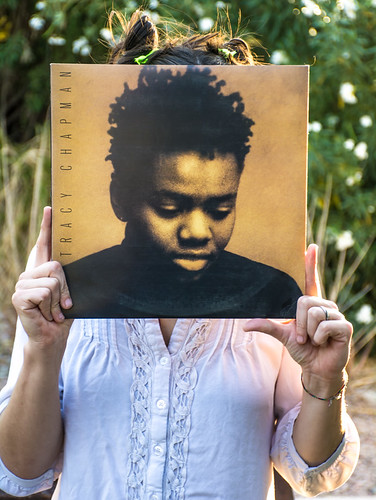Opinion: Tracy Chapman finally gets the standing ovation she deserves
Tracy Chapman #TracyChapman

Editor’s Note: Allison Hope is a writer whose work has been featured in The New Yorker, The New York Times, The Washington Post, CNN, Slate and elsewhere. The opinions expressed in this commentary are solely those of the author. Read more opinion on CNN.
CNN —
The music scales tipped towards justice Sunday night as veteran singer-songwriter Tracy Chapman at long last received a standing ovation decades in the making for her performance of “Fast Car” at the 2024 Grammy Awards. Chapman shared the stage with country star Luke Combs, whose cover of “Fast Car” went to No. 1 on the Country Airplay chart (making Chapman the first Black woman to top the chart since its advent in 1990). Chapman also reached No. 1 on Billboard’s Country Songwriters chart as a result.
Combs didn’t take home the award for best solo country performance (that honor went to Chris Stapleton for his original “White Horse”), but with this performance he honored Chapman in what felt like the first fair moment since the single released last year. “Fast Car,” the first single off Chapman’s self-titled debut album, won her a Grammy in 1989 for best female pop vocal performance (along with record and song of the year nominations). And while she won that year too for best new artist and best contemporary folk album and has for a number of years now withdrawn largely from public view, it’s often felt wrong to me that Combs, a White male country music star in an industry that continues to struggle with issues of race and sexuality, has shot to the stratosphere with a cover of a song created so uniquely by Chapman, a Black woman and queer icon. Even Chapman’s Country Music Award win for “song of the year” this past November felt like it fell far short of deserved accolades.
Sunday’s performance was a step toward making things right. On stage at the Grammys, Chapman played the acoustic guitar and the two took turns singing verses. At the end of the performance, Combs turned and bowed to Chapman, the ultimate sign of respect before the world stage. “Fast Car” was Combs’ “favorite song before he knew what a favorite song was,” as he relayed in a video that played prior to their performance.
Whenever I’ve heard Combs’s cover in the last year, I couldn’t help but turn away, change the station, turn on something else. While the song’s resurrection benefits Chapman – the song has made a reported $500,000 in royalties this summer — it bothered me so much that young people who hadn’t known the resplendent beauty of Chapman’s original recording might listen to Combs’s cover of “Fast Car” and not have a clue what informed those lyrics, or the soul whose lived experience bled for it.
When “Fast Car” first came out in 1988, and in the decades since, it served as an anthem for the queer community and for lesbians like me. I can still recall the chills I felt the entire time when I attended a Chapman concert more than two decades ago.
The lyrics from the song, “I had a feeling that I belonged,” speaks so directly to Chapman and to so many of our experiences as queer people who have never been invited in. The song relays her daydreaming of escaping the scrutiny of the life she and her carmate were living to build something stable together elsewhere. It speaks to the exclusion that queer people felt and continue to feel, too often shut out of the mainstream institutions and rites of passage that others enjoy, or access without second thought.
Hearing the twang of Combs’ low pitch belt out a song that resonated deeply within my circles of queer women, especially at a time that has been incredibly hostile to LGBTQ people, was difficult. In a year when LGBTQ people have once again come under greater threat with higher rates of discrimination, legislative attacks and more, the cover stung worse than any cover song ought to. The hostility today feels a lot like 40 years ago, a time before we won the right to marry, to legal protections against discrimination in employment, to merely exist without fear of repercussion. We once again fear losing it all, and we can’t afford to lose even a single one of our voices.
At the Grammys, a new generation got to see the power of the artist who first dreamed up the lyrics to describe her deeply personal struggles and experiences some four decades ago. Chapman in the spotlight on stage, holding her guitar and receiving the standing ovation from the audience she so deserves, was a vindication, a rightsizing of an inequity that felt a lot larger than just one song.
Get Our Free Weekly Newsletter
Women, who make up more than half the population, account for less than a quarter of the top artists on the Billboard Hot 100 chart. Of the very small number of Black women who make their way up, few are queer.
I’ll cherish Sunday night’s performance and hope that it ushers in a new era, one where credit is given where credit is due, and where we collectively honor the genesis of greatness.
By acknowledging Chapman’s artistry, Combs and the Grammys honored her in precisely the way we should have all along.